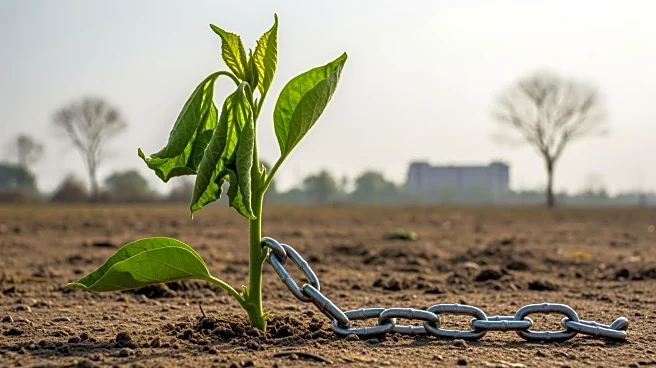What's Happening?
A third-year student from the College of Agriculture Vellayani in Thiruvananthapuram has dropped out due to a significant increase in tuition fees. Arjun, the student, recorded a video expressing his frustration
and inability to afford the new fees, which have risen from ₹15,000 to ₹50,000 per semester. His video has gained attention on social media, highlighting the financial challenges faced by students in public institutions. Arjun's family, engaged in small-scale farming, cannot support the increased cost, prompting his decision to leave the college.
Why It's Important?
The fee hike at Vellayani Agriculture College raises concerns about accessibility and affordability of higher education in public institutions. It underscores the financial barriers that can prevent students from completing their education, particularly those from economically disadvantaged backgrounds. The situation may prompt discussions on the need for government intervention to regulate tuition fees and ensure equitable access to education. The broader implications include potential impacts on the agricultural sector, as fewer students may pursue studies in agriculture due to financial constraints.
What's Next?
The fee hike may lead to increased advocacy for policy changes to address educational affordability. Stakeholders, including students, educators, and policymakers, may engage in discussions to find solutions that balance institutional funding needs with student accessibility. There could be calls for increased scholarships or financial aid programs to support students affected by the fee increase. The situation may also prompt a review of the fee structures in other public colleges to prevent similar issues.
Beyond the Headlines
The incident highlights the socio-economic challenges faced by students in pursuing higher education, particularly in specialized fields like agriculture. It may lead to broader debates on the role of education in social mobility and the importance of government support in ensuring equal opportunities for all students. The cultural significance of agriculture in regions like Kerala adds another layer to the discussion, emphasizing the need to support future generations in this vital sector.










